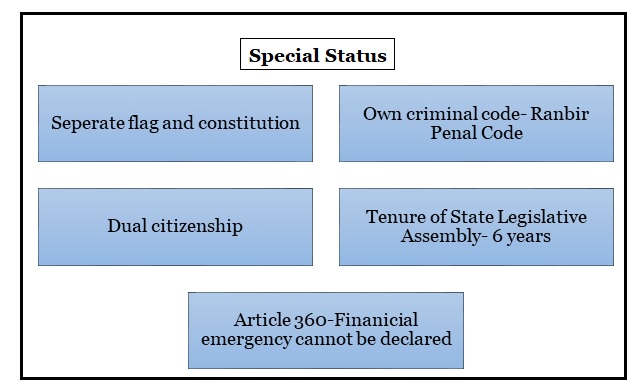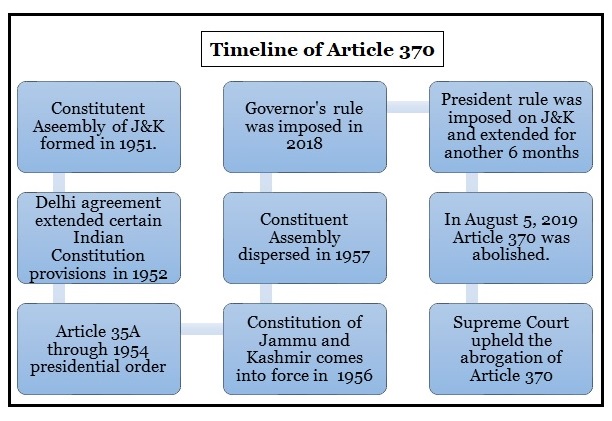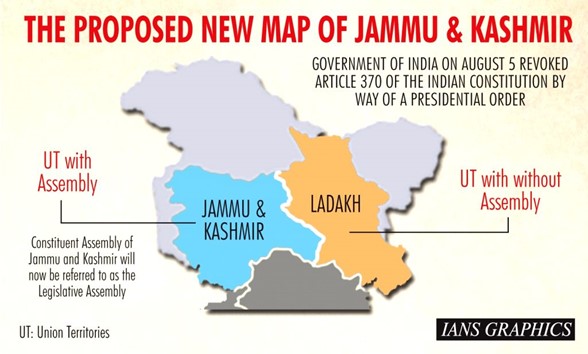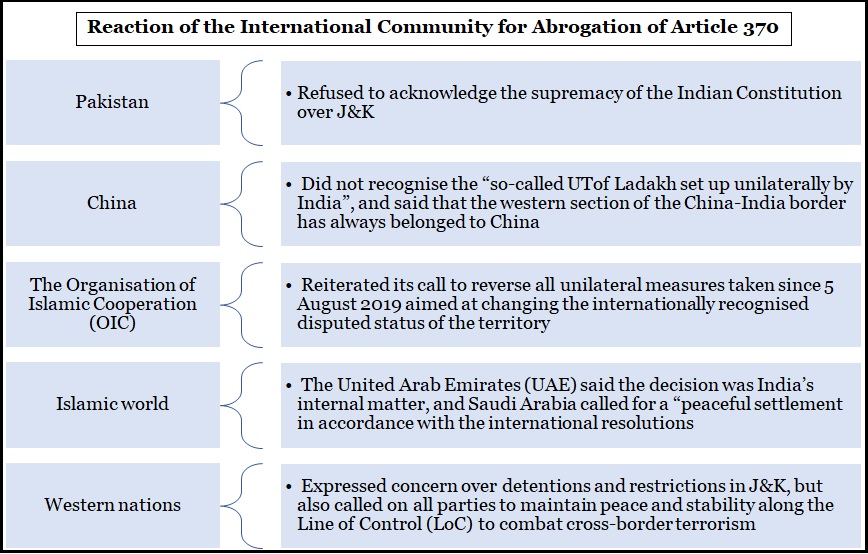A Constitution Bench of the Supreme Court unanimously upheld the power of the President to abrogate Article 370 of the Constitution, which granted special status to the former State of Jammu and Kashmir (J&K).
|
History of J&K’s Accession to India |
|

The permanent resident of J&K has been defined as a person who was a subject of the State on May 14, 1954, or a person who has been residing in J&K for 10 years, and has acquired immovable property in the State under the ambit of law.

Article 367 provides guidance on the interpretation of various provisions of the Constitution and set out the rules for determining the meaning of words and phrases used in the Constitution.

National Unity Day was observed on October 31, 2019, the day the two union territories (J&K and Ladakh) were established.

The doctrine of colourable legislation means what cannot be done directly cannot also be done indirectly.
Article 3 empowers the Parliament to form new States and alter the boundaries of existing State. It is mandatory for the President to refer any Bill proposing the reorganisation of a State to its legislature if the Bill “affects the area, boundaries or name of any of the States”.
|
Key issues |
SC verdict |
|
Nature of Article 370 |
|
|
Internal Sovereignty of J&K |
|
|
Federalism |
|
|
Constitution of J&K |
|
|
President rule in J&K |
|
|
Parliament power under Article 356 |
|
|
Reorganisation of the State under Article 3 |
|
|
Truth and Reconciliation Commission (TRC) |
|
|
Elections |
|
The last Assembly election was in 2014, and the last elected administration fell in June 2018.
Quick Facts
|
SR Bommai Case – Regarding Article 356 |
|